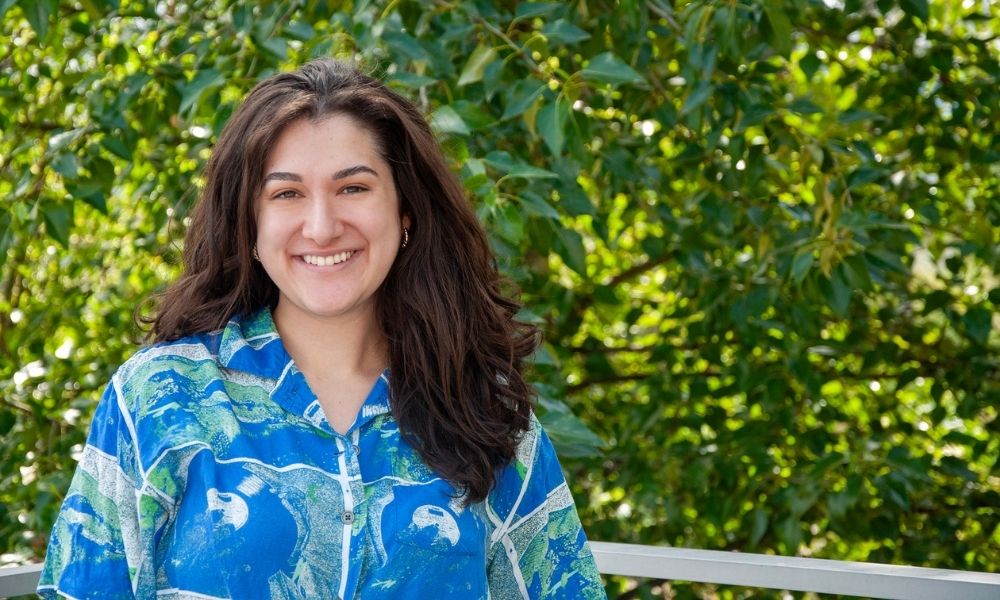
Congratulations to our Maxwell Cameron Award recipient and 2023/2024 Bachelor of Education graduate, Gaby Sandhu!
During her teacher education journey, Gaby demonstrated an unwavering commitment to fostering inclusive, socially conscious learning environments both inside and outside the classroom. During her candidacy field experience, Gaby stood out for her ability to build safe and compassionate spaces for students. Whether addressing themes of racism, misogyny, or LGBTQ+ rights in her English classes, or simply being a supportive presence during lunch breaks, she modeled the kind of care, courage, and critical thinking that transforms classrooms into communities.
While completing her certifying field experience, she went above and beyond her teaching responsibilities by volunteering with the school’s Global Awareness Club, supporting initiatives like a library movie night and multiple bake sales to raise funds for BC Red Cross wildfire relief. Gaby also connected with learners through her attendance at the BIPOC Awareness Club, further exemplifying her dedication to equity and student engagement.
Question and Answer Session
About Gaby Sandhu
As a white-presenting Punjabi woman, my cultural identity is a critical part of the person I am today. My cultural identity is something I have spent nearly my whole life navigating. Having been raised in a Punjabi household, I have often found that the colour of my skin conceals much of my identity to the outside world, and likewise, the cultural funds of knowledge that I hold are not necessarily visible to others. I come from a long line of inspiring women, very much akin to a matriarchy, many of whom bravely immigrated to Canada in the face of arranged marriage, or maneuvered through the racial and cultural complexities of being second generation. Amazing women who have worked their entire lives to subvert oppression in the forms of class, racial, and gender inequality. The legacy of these women is something I carry in everything I do.
The honest truth is that my cultural identity does pose its challenges, but it also offers invaluable perspective that I am grateful to hold. As an adult, I find myself constantly reflecting on how I fit into the world as a minority and POC. Ultimately, my positionality fuels my advocacy for social justice. Through my experiences, I have come to understand the power of identity, and moreover, how visibility can serve as a catalyst to understanding oneself.
In my free time, I love being lazy and relaxing on my couch. Whether it’s reading, watching movies, or playing video games, couch time is my favourite. Recently I’ve been binge-watching “The Handmaid’s Tale,” and the best book I’ve read this year is Headshot by Rita Bullwinkle. It’s a wonderful novel about female boxers with tons of captivating feminist theory nestled into the narrative.
What inspired you, or motivated you, to pursue the field of education as career?
My aspiration to become a teacher began during my time in high school, as I was largely inspired by the important role that educators played in my own academic journey. Some of my fondest memories in high school include the remarkable educators who made me feel seen and valued during my adolescence. I feel indebted to my previous teachers for their ceaseless support and commitment, and thus feel inspired to do the same for my future students.
What does receiving the award mean to you?
Receiving this award means absolutely everything to me. It validates much of what I understand and believe about teaching as a profession, and moreover, as an identity. As an educator living and working within Canada, I hold a responsibility to challenge the long-established colonial systems that are rooted so deeply in our education system. It is our sole responsibility to deconstruct and disrupt a long history of privilege and power that has dominated Canadian education. As profoundly said by the Honourable Justice Murray Sinclair, “it’s education that got us into this mess, and education is what will get us out of it.”
We do this by teaching in a way that truly honours and fulfills an equitable, inclusive, diverse, decolonized, AND Indigenized learning space for our students to explore curriculum in an environment that makes them feel seen, valued, safe, and represented. We do this by teaching through a lens that aligns with the First Peoples Principles of Learning, and making space for culturally responsive teaching.
Practicing decolonized pedagogy is difficult work. Advocating for learner inclusivity requires courage, and often, a willingness to engage in uncomfortable conversations with those who take it for granted. Maintaining a safe, welcoming, and inclusive learning space takes a tremendous amount of dedication, and involves a profound awareness of the power of modelling. Practicing inclusive, equitable, diverse, and decolonized pedagogies is a commitment made each and every day, to both yourself, and your learners.
This award deeply recognizes that effort. To be worthy of the Maxwell Cameron Award makes me feel even more certain of my pedagogical beliefs around EDID education, and allows me to feel proud of the educator I strive to be – someone who allows learners to feel safe in being themselves. With all of my gratitude, I sincerely thank the Okanagan School of Education and BCTF for this award.
Looking back, is there a moment at the Okanagan School of Education that stands out as meaningful, funny, or transformative?
Very early on, around the second week of September, the Okanagan School of Education hosted an IndigenEYEZ workshop for all the teacher candidates to participate in, which was facilitated by Kelly Terbasket. The entire workshop was greatly insightful an offered much opportunity for personal reflection. We spent the day unpacking concepts and participated in activities encompassing decolonization, affinity bias, racism, social identities, and code shifting. While the whole day was immensely transformative, I found one particular activity to be especially significant: the teacher candidates had gathered together and put forth our visions for what the future of education looked like twenty years from that day. Sharing aspirations of change with my peers, my friends, was profound and powerful work for us to do in the presence of each other. After that day, I remember feeling so grateful for the opportunity to study with the Okanagan School of Education. That day gave me so much faith for the 16 months to come.
What motivated you to get involved in supporting student clubs, such as the Global Awareness Club?
While completing my teaching internship at Kelowna Secondary School, I found myself in a role supporting the student Global Awareness Club. My motivation to get involved was largely inspired by the passion my student’s showcased for Global Awareness advocacy. I was fortunate to have the opportunity to teach English 11 AP to a wonderful group of learners, many of which belonged to the club. During class, it was common for students to discuss upcoming fundraising efforts and goals that the club was striving towards. In connecting with my student each day, conversations about Global Awareness became a regular occurrence. The club was primarily student-led, and I found myself constantly awe-struck by their outstanding collaboration to make a difference in the world around them. Lending a hand to support the club was entirely for the betterment of my learners. Their passion was infectious and I wanted to support them.
During your field experiences, you made space for students to explore complex topics like racism, tokenism, and gender identity in meaningful ways. How did you approach creating a safe, inclusive classroom environment where students felt heard and supported? Any advice for future teacher interns?
Over the course of my field experiences, I’ve definitely engaged in some very complex topics with students. For example, I’ve had fascinating conversations with learners dissecting hegemonic masculinity in William Golding’s Lord of the Flies. I’ve facilitated conversations with my class about Kimberle Crenshaw’s theory of intersectionality. However, one of the moments I am most proud of during my time at the Okanagan School of Education was creating and facilitating a six-week unit on Indigenous (mis) representation in cinema for English First Peoples 12. Since the unit touched on a multitude of complex (and often uncomfortable) topics, including stereotypes, racial and gender-based discrimination, prejudice, tokenism, white privilege, appropriation versus appreciation, and pan-Indigeneity, maintaining an emotionally safe and inclusive classroom was crucial. This was achieved using a few different approaches.
Firstly, it was my utmost priority to maintain the students’ emotional well-being and safety as we navigated course material. This concern was made immediately transparent to the learners as well. At the beginning of the unit, we had a very honest class discussion about how the subject matter may be tough, and therefore may require vulnerability. Ultimately, students were permitted an opportunity to privately submit non-negotiables of what they needed to maintain a safe classroom space. These safe-space necessities became our socially binding contract over the next six weeks, and included a list of responsibilities for the classroom community to uphold. On my part, I fulfilled my responsibility to provide content warnings for my learners well in advance, acknowledged participation in lesson material at a class, group, and individual level, and was readily prepared to make learning accommodations when a learner needed support in navigating material.
Knowing your learners is an incredibly important piece in deciding to incorporate complex learning material. The class I was working with was a group of incredibly mature, dedicated learners who already demonstrated an eagerness for challenging material that would also provide valuable perspective. The learners in that particular group were also passionate about Indigenous rights, and a number of them participated in diversity advocacy clubs around the school. For these reasons, I felt comfortable facilitating lessons that focused on difficult subject matter.
Feedback. Feedback. Feedback. Throughout the unit, I felt it was essential to be constantly checking in on the student’s understanding of the films and learning materials being studied. Students provided me with reflective feedback incredibly often during our time together, through a variety of discussions (both class-wide and individually), through exit tickets, and a daily reflection placemat that they could essentially use to journal and collect thoughts that resonated with them (either positively or negatively), or questions about material that they wished to pursue further. I would take these placemats home each night, review them, comment on them, and come prepared to address any re-occurring questions or concerns the next day that I noticed. This created an ongoing line of communication between my students and I. When communication becomes a constant between educators and learners, it allows for any arising concerns to be more easily (and quickly) addressed.
Finally, and likely most importantly, reframing discomfort was a vital piece in maintaining classroom safety and inclusion. I encouraged by students to be proud of themselves for doing the challenging work of deconstructing racialized stereotypes that occur in our everyday world. I reminded them all that discomfort is a teaching tool: that often, there is utility in discomfort. I reminded my students that if an uncomfortable feeling comes up for them, that there is a reason why, and that reason deserves to be explored. That feelings of discomfort hold teaching opportunities for you to learn something about yourself. This is a teaching I once learned in my undergraduate degree from my previous professor Dr. Jessie King, who identifies as Ts’ymsen.
What advice do you have for incoming teacher candidates?
Firstly, there is a lot of value in being able to laugh at your mistakes. A certain genuineness can be found in laughing at your mistakes, especially when in-the-moment teaching goes wrong. The students also find it endearing!
Find a good group of individuals who will support you as you navigate the stepping stones of the education program, and more largely, preparing for the profession. We often encourage our learners to collaborate with their peers. Collaborating with colleagues is equally important. Find colleagues who will share, reflect, and contemplate with you. More importantly, seek out individuals who will nurture and broaden your pedagogical beliefs. Find others who are interested in the work of co-constructing meaning in the field of education and pedagogy.
Finally, I cannot overstate the importance of forming valuable, meaningful, relationships with your learners. Admittedly, connecting with learners is the BEST part of the job, but it is also arguably the most important part of the profession. As an educator, you have the opportunity to be a student’s champion. You carry the unbelievable ability of making a substantial imprint in the life of another. As an educator, you have the opportunity to instill confidence in your learners. To hold faith in them when their own faith flounders. To root for them. To laugh with them, and sometimes, cry for them too. It is probably one of the best gifts we could ever be given. Teach from the heart, and choose to be champion.
About the Maxwell Cameron Award
The Maxwell A. Cameron Award is given annually by the British Columbia Teachers’ Federation (BCTF) to students completing the final year of the Bachelor of Education degree in elementary and secondary school teaching. The recipients of the award are those students who are considered to be outstanding students in the graduating class who have initiated, worked, or participated in a project that created positive change globally or in their local community, and or, been actively involved in issues related to poverty, LGBTQ rights, women’s rights, antiracism, peace, global or environmental issues.
The award is named after Maxwell Cameron who headed the Department of Education at UBC in the mid-1940s. Prior to that, he was on staff as an associate professor and director of UBC’s summer school.
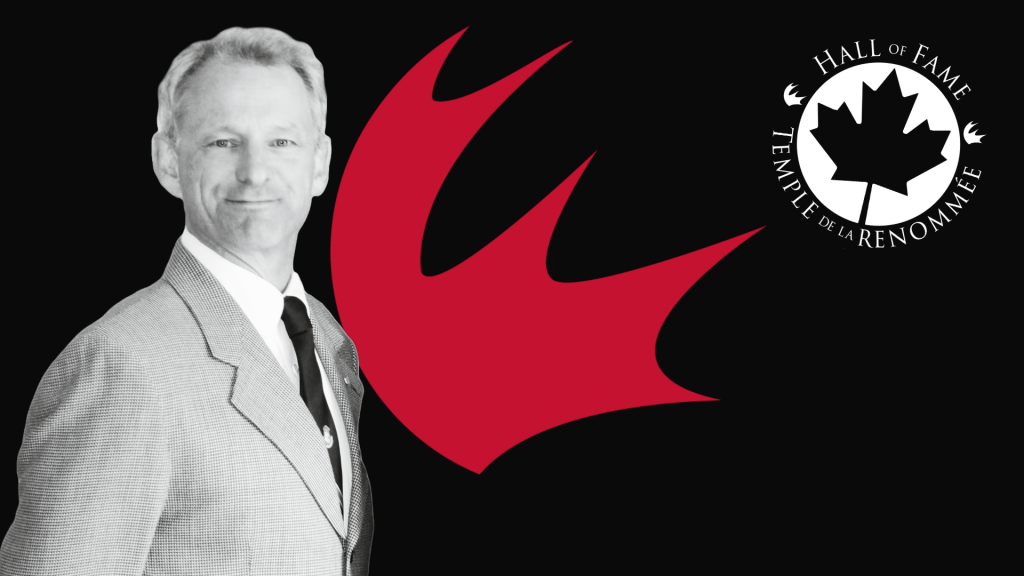
 The CCAA Hall of Fame honours the remarkable achievements of individuals who have significantly contributed to Canadian collegiate athletics. The builder category recognizes those whose vision, dedication, and long-standing service have shaped the development of collegiate sport across the country. Through their leadership, advocacy, and commitment, these individuals have left a lasting legacy on their institutions, conferences, and the CCAA as a whole.
The CCAA Hall of Fame honours the remarkable achievements of individuals who have significantly contributed to Canadian collegiate athletics. The builder category recognizes those whose vision, dedication, and long-standing service have shaped the development of collegiate sport across the country. Through their leadership, advocacy, and commitment, these individuals have left a lasting legacy on their institutions, conferences, and the CCAA as a whole.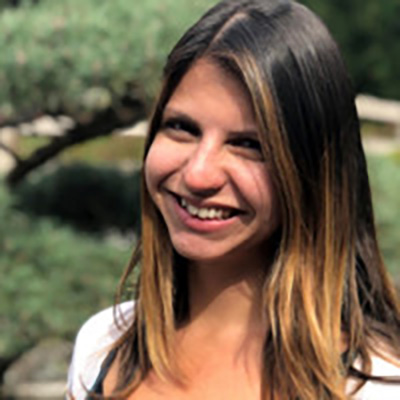
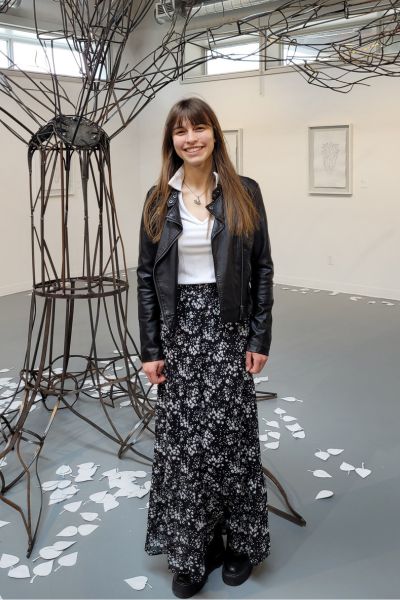 Congratulations to our Sharon McCoubrey Award in Visual Arts recipient and 2023/2024 Bachelor of Education graduate, Makeena Hartmann!
Congratulations to our Sharon McCoubrey Award in Visual Arts recipient and 2023/2024 Bachelor of Education graduate, Makeena Hartmann!
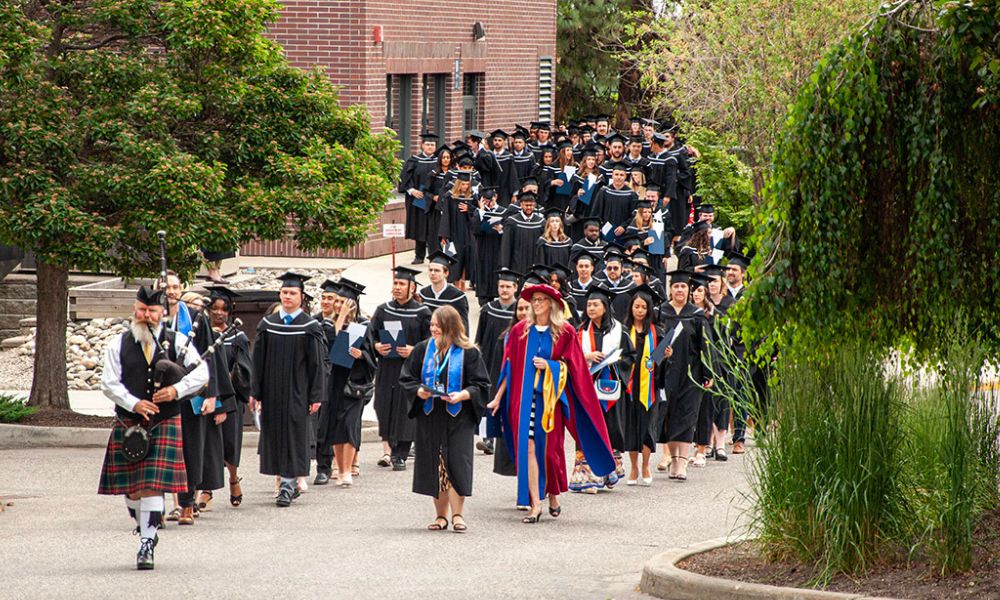
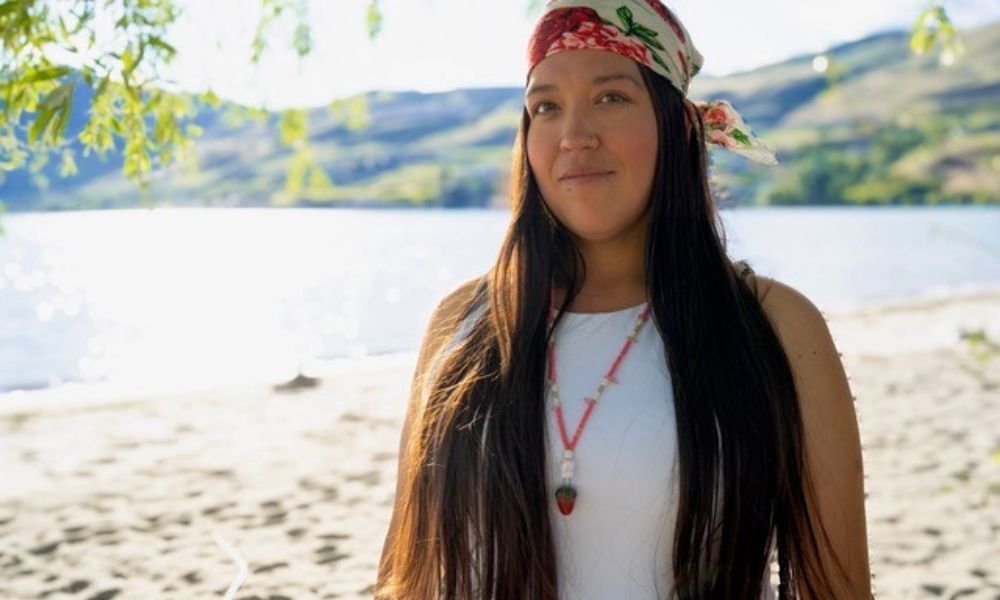
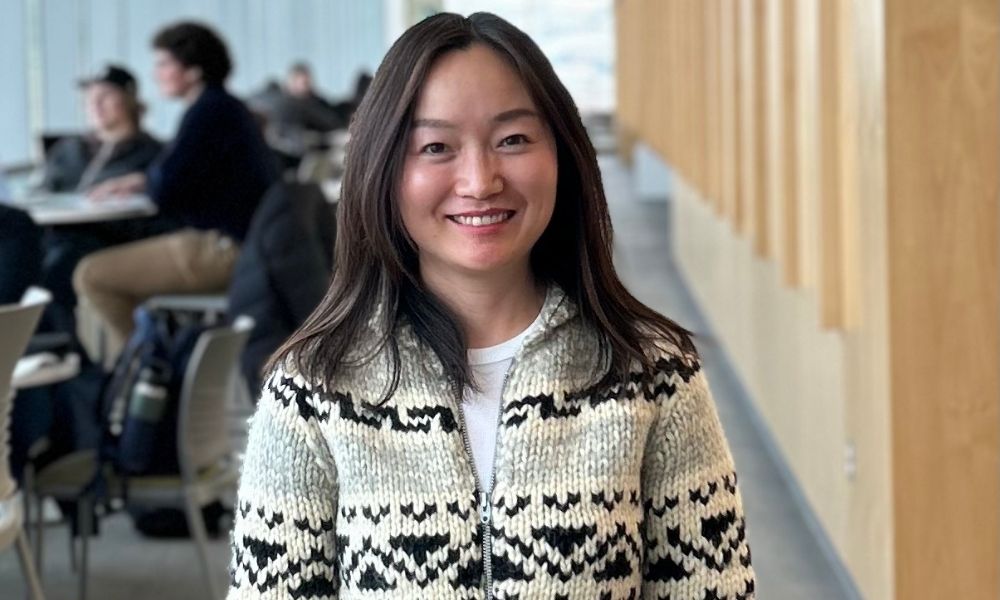
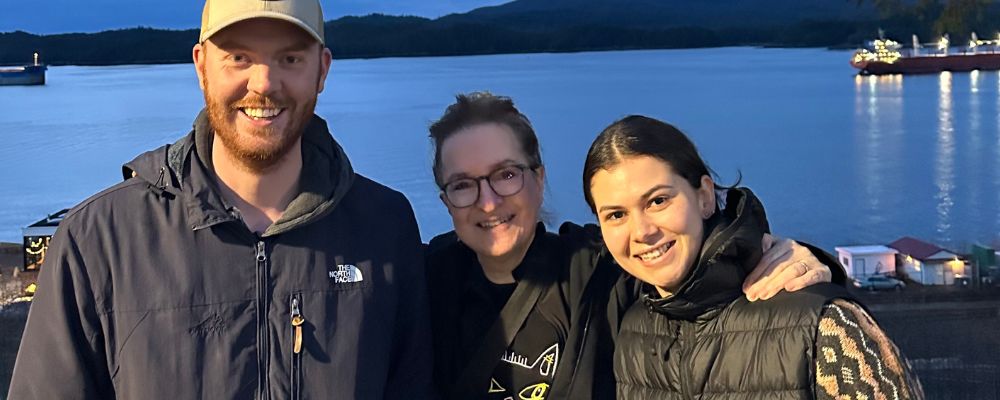
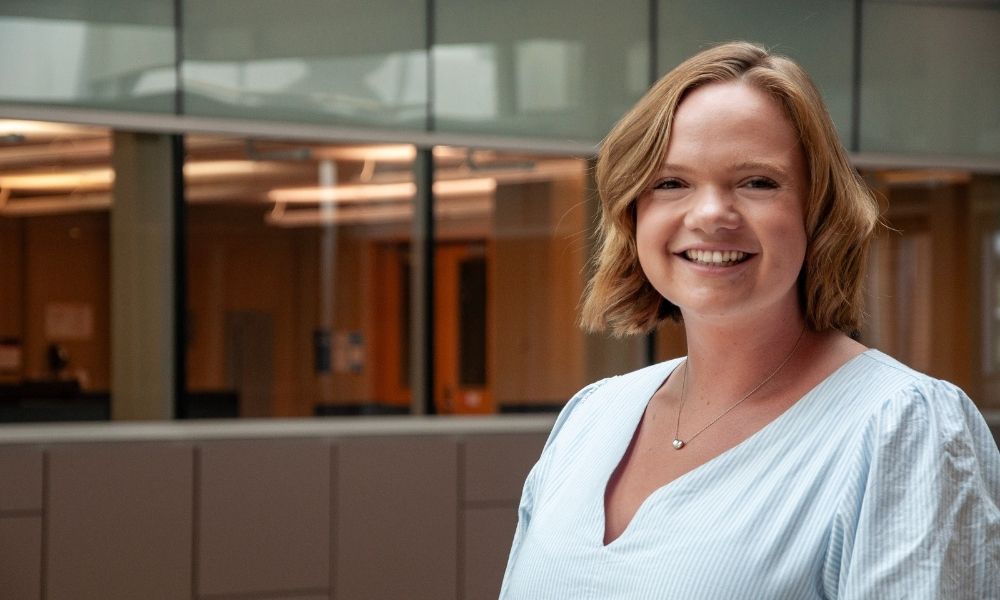
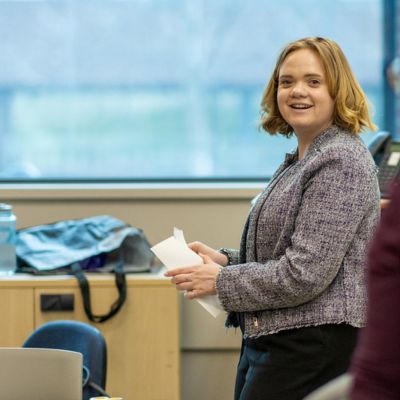 After spending the first two years of her undergraduate degree in online classes, the EFP supported her sense of connection to campus and highlighted the universal nature of the student experience.
After spending the first two years of her undergraduate degree in online classes, the EFP supported her sense of connection to campus and highlighted the universal nature of the student experience.
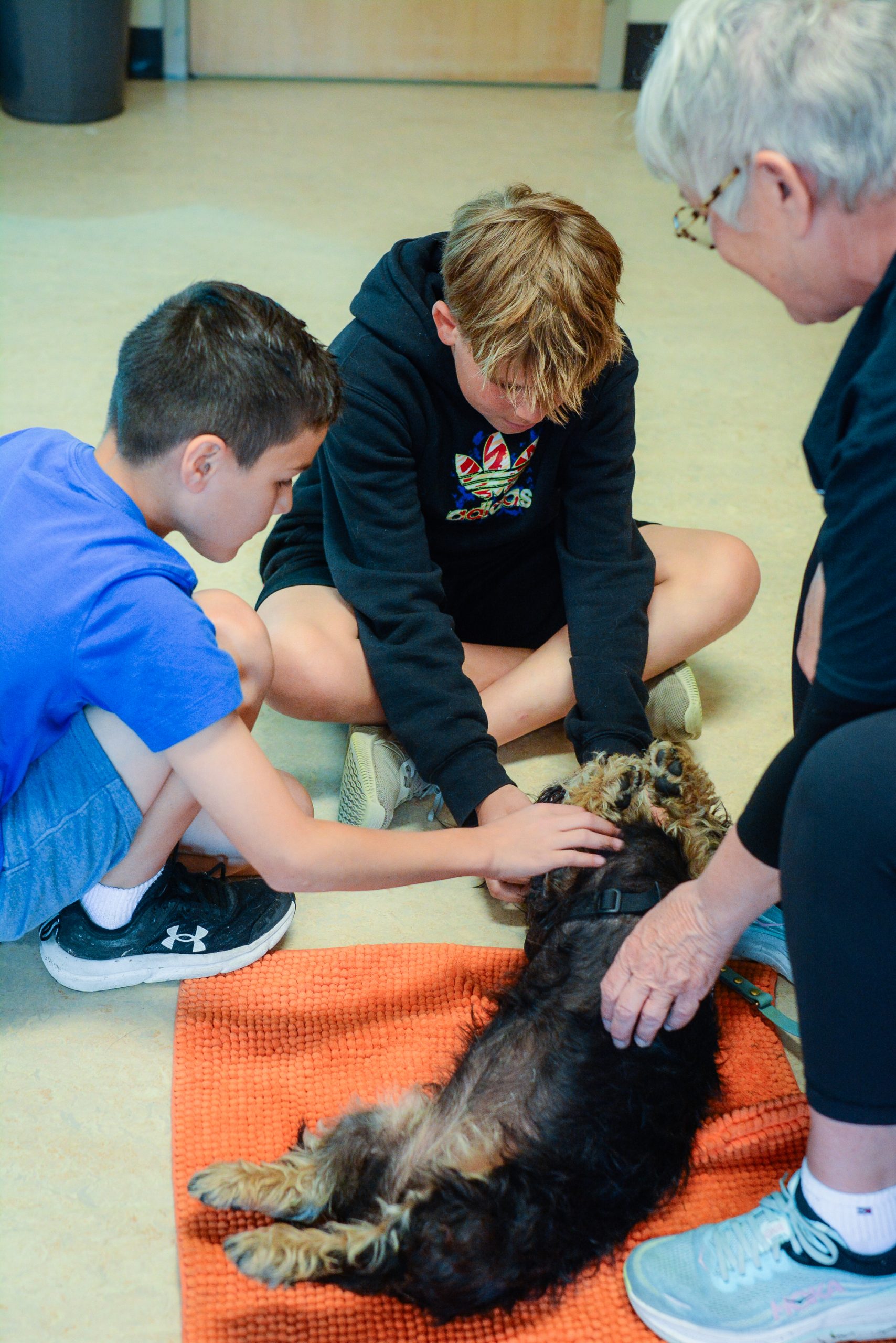 One of the most impactful outcomes, said Kirkey-Stead, was the emotional shift she observed. “
One of the most impactful outcomes, said Kirkey-Stead, was the emotional shift she observed. “